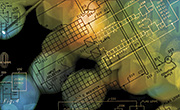
Federal Circuit Overturns Patent Trial and Appeal Board Decision on Claim Construction; Ratifies Certain Requirements for Patent Owner Amendments
In a decision with important consequences for patent challenges before the U.S. Patent and Trademark Office's Patent Trial and Appeal Board ("PTAB" or "Board"), the Federal Circuit, on June 17, 2015, substantially overturned the PTAB's final written decision in Microsoft Corp. v. Proxyconn, Inc., IPR2012-00026 and IPR2013-00109 (PTAB Feb. 19, 2014).
The Federal Circuit's decision is important for three reasons. First, the Federal Circuit rejected Proxyconn's argument that the "broadest reasonable interpretation," or "BRI," standard for claim construction applied by the Board was inappropriate, adhering to its decision in In re Cuozzo Speed Techs., LLC, 778 F.3d 1271 (Fed. Cir. 2015). (Jones Day's previous coverage of In re Cuozzo Speed can be foundhere and here.) (Further, note that Congress is currently considering changes to PTAB claim construction standards, as discussed here.)
Second, the Federal Circuit—despite having rejected Proxyconn's plea to discard the BRI standard—nonetheless held that the "broadest reasonable interpretation" must still produce a reasonable claim construction. The court concluded that certain claim constructions made by the Board contradicted other language of the claims and were thus unreasonable. Accordingly, the court vacated the unpatentability rulings that were based upon these unreasonable constructions. The court did side with Microsoft on some claims, however, concluding that the Board was correct to find those claims to have been anticipated. The opinion represents the Federal Circuit's first reversal of a PTAB claim-construction decision.
Third, and perhaps of most importance to practitioners appearing before the Board, the Federal Circuit commented on the Board's refusal to allow Proxyconn to make requested amendments to claims 1 and 3. In developing rules for PTAB proceedings, the Patent Office promulgated certain rules (i.e., 37 C.F.R. §§ 42.20, 42.121) related to motions and amendment practice. Rule 42.121 details reasons that the Board might appropriately deny a motion to amend, including that the amendment seeks to enlarge the scope of the claims or that the amendment does not respond to a ground of unpatentability involved in the trial. 37 C.F.R. § 42.121(a)(2).
In administering PTAB trials, the Board has developed additional requirements for PTAB amendments that were detailed in Idle Free Systems, Inc. v. Bergstrom, Inc., IPR2012-00027 (PTAB June 11, 2013), a decision noted by the Board as being "Informative." Those requirements included: (i) providing an identification of features added to substitute claims; (ii) providing technical facts and reasoning why those added features result in patentability; and (iii) providing construction of new claim terms sufficient to persuade the PTAB that the substitute claim is patentable over the prior art of record and over prior art not of record but known to the patent owner. Such facts and arguments should be presented in more than a conclusory manner. Idle Free at 4-5.
In making its case for the appropriateness of the claim 1 and 3 amendments, Proxyconn argued that it should have to differentiate its claims only over the prior art cited against claims 1 and 3 in the trial, but not prior art cited against other claims. Proxyconn argued that reasons for denying a motion to amend were limited to those set forth in 37 C.F.R. § 42.121. The Federal Circuit disagreed, finding that the Rule 42.121 list was not exhaustive and that at least the Idle Free requirement that the patent owner show a patentable distinction of the substitute claims over the prior art of record was acceptable. The court was careful to note that it was not making any judgment as to the acceptability of the other Idle Free conditions not at issue in the case (e.g., that the patent owner must show a patentable distinction over prior art not of record but known to the patent owner).
In short: The Proxyconn decision provides another useful indicator of how the Federal Circuit will treat PTAB decisions. The opinion confirms that while the BRI standard will be used for claim-construction decisions, Board constructions must still be reasonable when considered in light of the entire patent record. The opinion further ratifies the PTAB's amendment requirement that requested amendments include a patent owner discussion of why the amended claims are patentably distinct over all prior art of record in the trial. The decision will likely stand as an important elaboration on the proper procedures to be followed before the still-fledgling PTAB.
Lawyer Contacts
For further information, please contact your principal Firm representative or one of the lawyers listed below. General email messages may be sent using our "Contact Us" form, which can be found at www.jonesday.com/contactus/.




